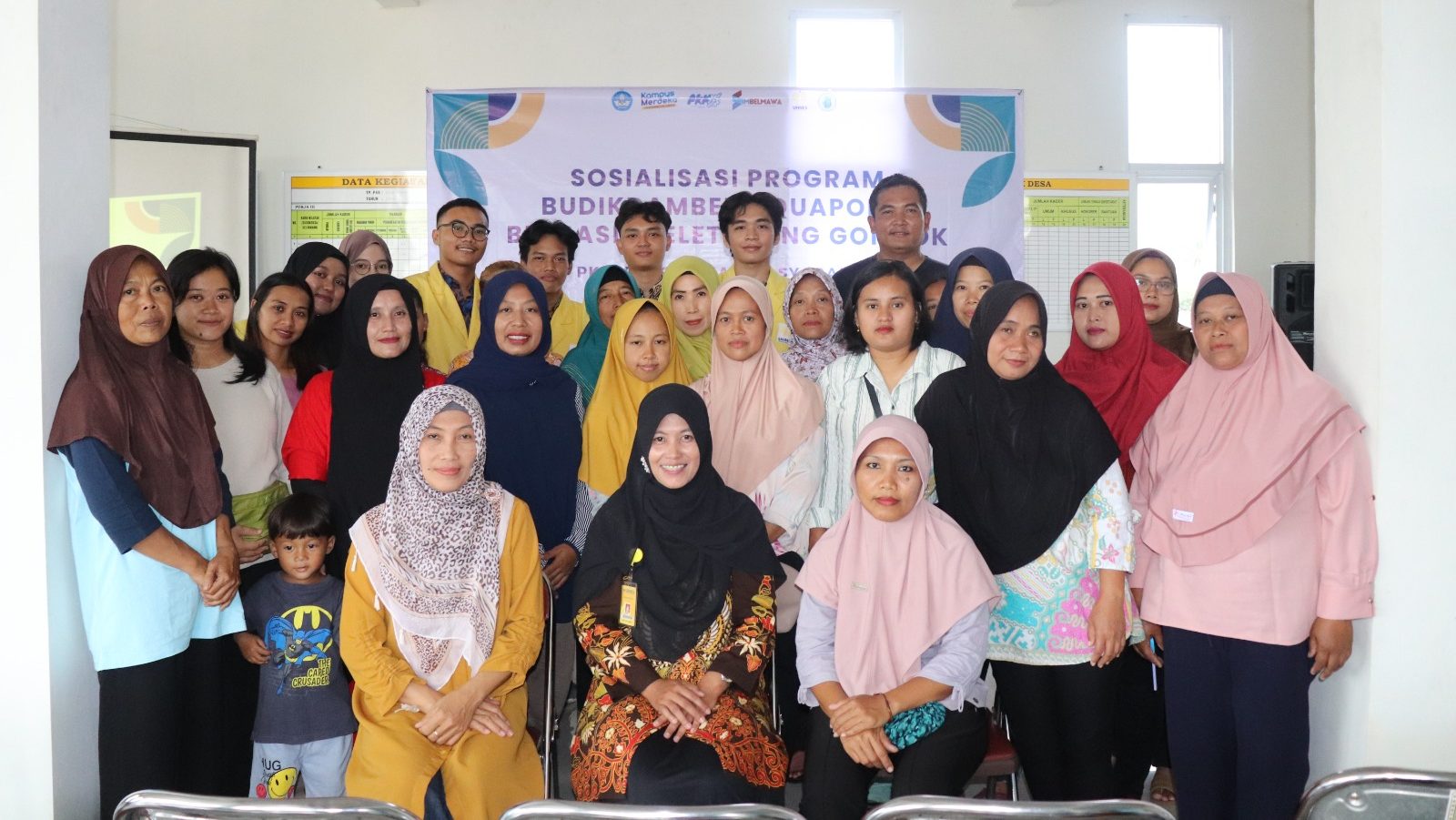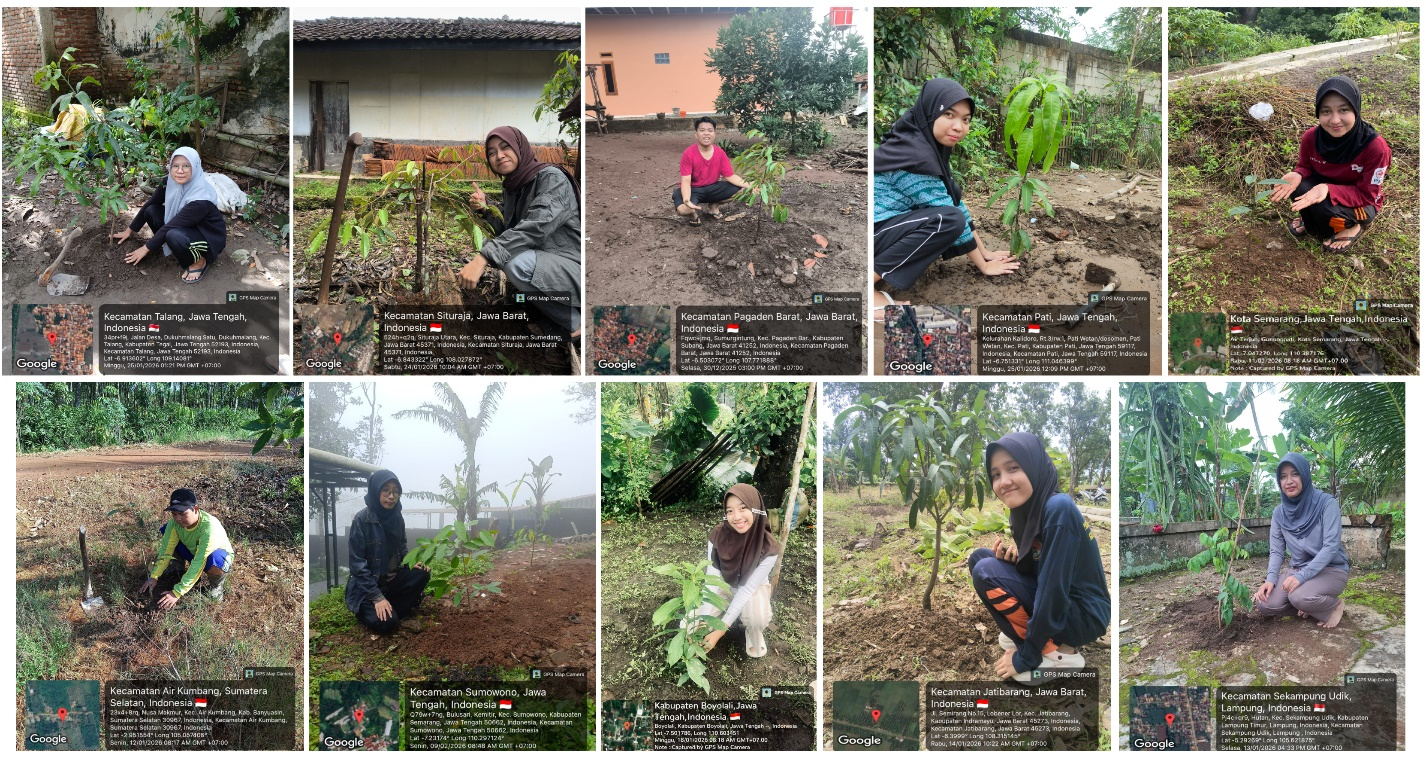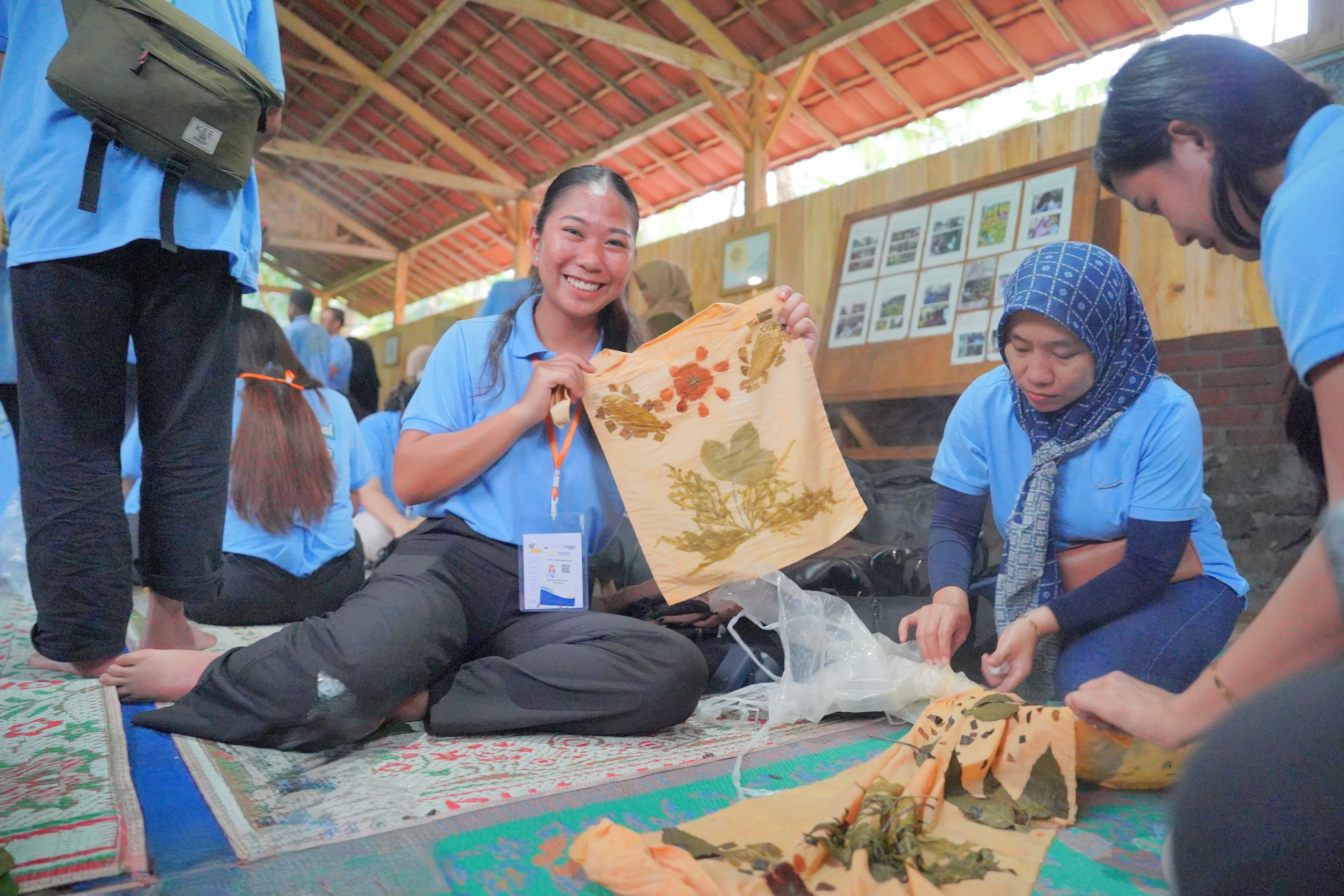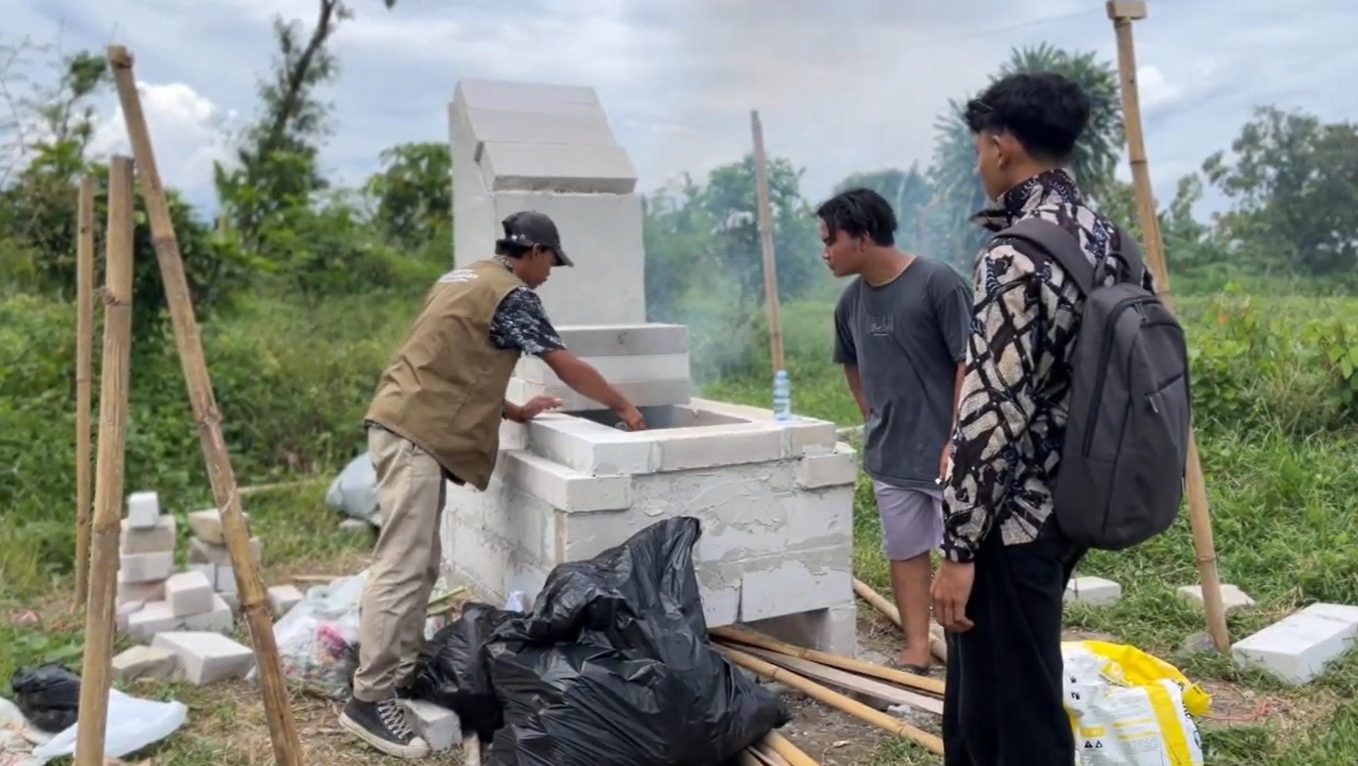Eceng gondok merupakan tanaman yang jumlahnya melimpah di Danau Rawa Pening. Namun, pertumbuhan eceng gondok yang dianggap sebagai gulma ini dapat mengganggu ekosistem di danau jika eceng gondok ditidak dimanfaatkan dengan benar. Berangkat dari permasalahan tersebut, Tim Program Kreativitas Mahasiswa Pengabdian Masyarakat (PKM-PM) Universitas Negeri Semarang (UNNES) membuat inovasi budikdamber aquaponik berbasis pelet eceng gondok yang dilaksanakan di Desa Bejalen, untuk meningkatkan kemandirian pangan dan konservasi ekosistem Danau Rawa Pening.
Tim yang dikenal dengan nama Tim Baraya Bejalen, telah berhasil menggerakkan ibu-ibu rumah tangga penerima PKH Desa Bejalen yang berjumlah 30 orang berlokasi di tepian Danau Rawa Pening dalam pemanfaatan eceng gondok sebagai bahan baku pembuatan pelet yang kaya protein sebagai solusi ekonomis bagi masyarakat.
Dengan memanfaatkan eceng gondok yang berlimpah, masyarakat Desa Bejalen kini dapat memproduksi pelet dengan biaya rendah dan ramah lingkungan. Selain itu, pemanfaatan eceng gondok ini juga menjadi langkah penting dalam upaya konservasi Danau Rawa Pening.
Disamping pembuatan pelet, Tim Baraya Bejalen juga memperkenalkan metode budikdamber (budidaya ikan dalam ember) aquaponik kepada masyarakat. Metode ini memungkinkan budidaya ikan lele dan tanaman kangkung dalam satu sistem yaitu menggunakan ember. Cara ini sangat cocok untuk diterapkan di lahan terbatas. Selain efisiensi air, peningkatan produksi melalui siklus nutrien yang efektif, dan solusi ramah lingkungan juga mudah diimplementasikan.
Program yang didukung oleh Universitas Negeri Semarang serta Kementerian Pendidikan, Kebudayaan, Riset, dan Teknologi ini telah melakukan sosialisasi, pelatihan dan pembuatan pelet eceng gondok, penerapan budikdamber aquaponik, monitoring dan evaluasi.
Selain itu, mereka juga memberikan buku pedoman mitra untuk keberlanjutan program dan pengolahan hasil budidaya menjadi makanan yang bergizi, serta evaluasi keseluruhan di akhir program. Rangkaian kegiatan tersebut berlangsung sukses dari 23 Mei 2024 hingga 10 Agustus 2024.
Tim Baraya Bejalen terdiri dari dari mahasiswa yang tersebar dalam beberapa prodi yang beranggotakan: Tedhy Pikrihaikal, Rizzky Anugrah, Aditya Hadi Prawira (Prodi Teknik Kimia), Irna Mufidatul Himmah, dan Adila Unadi (Prodi Kesehatan Masyarakat).
Mereka mendapat bimbingan dari Dr. Harianingsih, S.T., M.T.
Keberhasilan program ini mendapat apresiasi dari masyarakat dan pemerintah Desa Bejalen. Salah satu warga mengungkapkan banyak pengetahuan baru setelah mengikuti program ini.
“Menurut saya program ini sangat kreatif ya buat kami, dari yang tidak mengerti apa-apa menjadi mengerti cara membuat pelet dari eceng gondok yang mungkin dianggap gulma ya, tapi ternyata ada manfaatnya yang baik untuk pembuatan pelet eceng gondok. Sekarang kami tahu cara membuat pelet ikan sendiri dan bisa membudidayakan ikan serta menanam sayuran di ember secara mudah” ungkap salah satu warga.
Melalui program ini, Tim Baraya Bejalen telah berhasil memanfaatkan eceng gondok sebagai bahan yang berharga dan sekaligus meningkatkan pengetahuan teknologi masyarakat, khususnya bagi penerima program PKH terkait pembuatan pelet dan budidaya ikan lele serta kangkung yang lebih efisien melalui budikdamber aquaponik. Diharapkan, masyarakat Desa Bejalen dapat melanjutkan program ini secara mandiri, sehingga tercapai kemandirian pangan, pelestarian ekosistem, dan peningkatan produktivitas di masa mendatang.
Sumber: https://unnes.ac.id/pkm-pm-unnes-tingkatkan-kemandirian-pangan-melalui-budikdamber-aquaponik/




